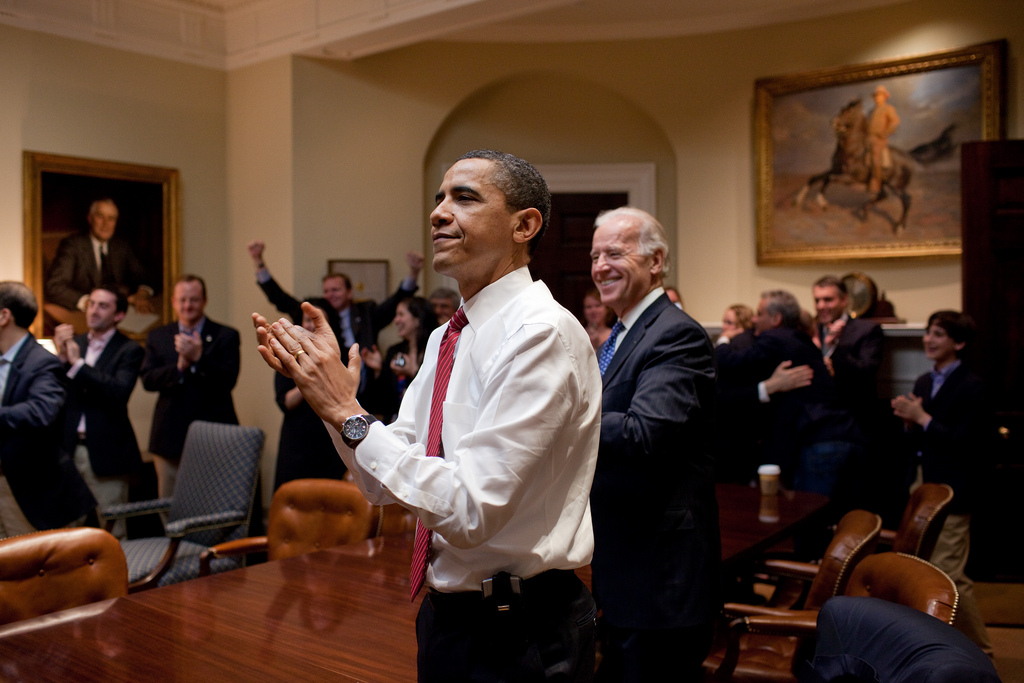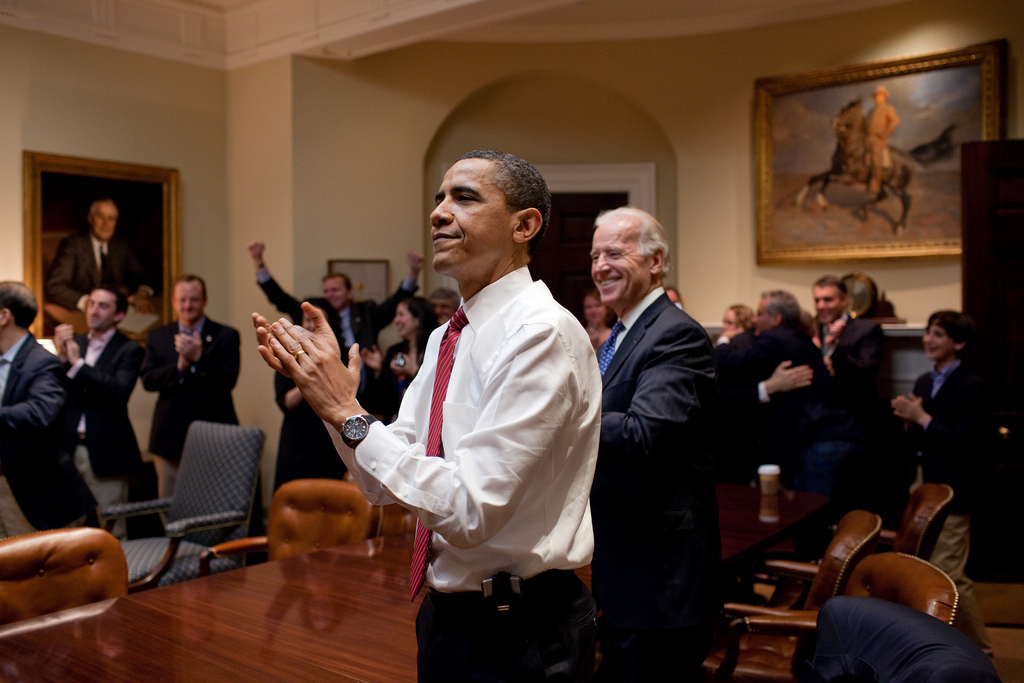Health care reform has passed and Obama will sign it into law Tuesday. By the end of the week, most experts forecast at least twelve katrillion thumbsucking “what does health care reform mean for X” pieces. This is one of them.
 Barack Obama and Joe Biden react to health care voteWhite House
Barack Obama and Joe Biden react to health care voteWhite House
First, politics aside, this is the largest expansion of the social safety net and the most significant social legislation in over forty years. Millions of lives will be improved and hundreds of thousands of premature deaths avoided. As Jon Chait says, Obama has already secured his place in history. So there’s that.
Secondly, Nancy Pelosi is a G. Not only did she push the entire Democratic establishment to stiffen its collective spine after Scott Brown’s victory; not only did she masterfully and implacably whip votes for health care reform; under her leadership, the House has passed major progressive legislation on health care, climate change and energy, financial reform, and economic stimulus, to say nothing of many other smaller efforts. Were the U.S. a unicameral parliamentary system like most developed democracies, this past year would have changed the course of history and Democrats would have secured a generational majority. But: the Senate.
Thirdly, speaking of the Senate, climate legislation can’t do what health care reform did. The only reason HCR is headed to the president’s desk is that the Democrats had a 60 vote majority in the Senate prior to Scott Brown’s election on Jan. 19. By then the Senate had already passed the bill (which in itself counted as a miracle). The key to the bill’s ultimate success was that the House agreed to vote through the Senate’s bill as long as the Senate made some modifications via a process called budget reconciliation, which only requires a 51 vote majority. In other words, at every stage the bill has proceeded on a party-line vote.
Now that there are no longer 60 Dems, that’s not even theoretically possible (not that it was ever realistic on climate). No more major bills can pass on a party-line vote. If Republicans maintain their extraordinary party unity and blanket opposition, no more major bills can pass at all. In the end, Republicans couldn’t stop HCR, but they can stop the climate bill, and they know it. Of course Sen. Lindsey Graham has been cooperating on climate, but he has said in recent weeks that using reconciliation for HCR would “poison the well” for subsequent efforts. Graham himself has a good deal of personal credibility tied up in climate legislation, so he probably won’t bail, but he hasn’t yet elicited any commitments from his fellow Republicans, and lots of them will be feeling mighty grumpy for the next few months.
There will be lots of talk about how this victory builds momentum and fortifies resolve for Democrats. Given a taste of victory, they’ll be fired up to do more. Maybe that will be true. But the level of fired-uppitude among the Dem base, or House Dems, or Obama, is ultimately beside the point. The problem has always been, and remains, the Senate. Conservadems have been saying for months that the Senate has already done one big thing this session, and, goodness, what do you want from them? Financial reform is next on the docket. Then possibly immigration. You want them to do climate too? HHHHHhhhhhhh. [Sound of teenage-style sigh.]
Anyway, HCR passing is an enormous accomplishment. But to pass a climate bill of comparable scope, there would have to be the same kind of patient, sustained effort from Dem leadership in the face of setbacks and prognostications of failure. Only it would have to be faster (time is running out). It would have to secure Republican support for a major Dem initiative, which would be a first in Obama’s term. It would have to coax even more nervous Dems in conservative states from no to yes. It’s just a more difficult hill to climb.
Tell you what, though: pass the nation’s first climate bill alongside health care reform and Obama’s Dem majority will take its place beside FDR’s as American history’s most consequential. Maybe, if nothing else, this weekend’s victory will open Senate Dems’ eyes to that possibility. It’s a nice thought — even nicer, some might argue, than winning the next election.



